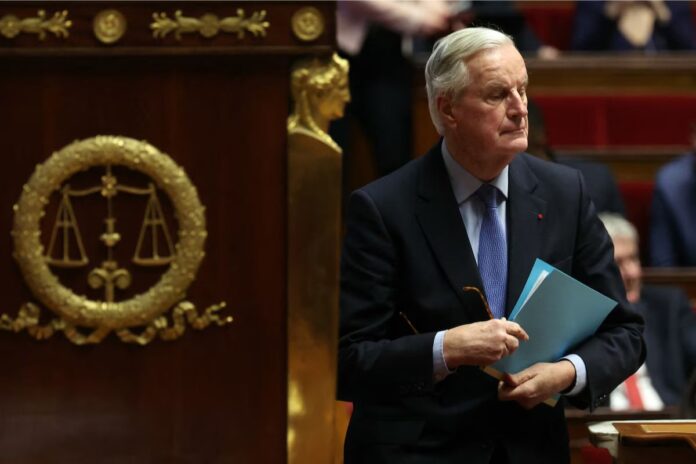In a dramatic turn of events, the French government has collapsed after Prime Minister Michel Barnier was ousted in a no-confidence vote on Wednesday. Just three months after his appointment by President Emmanuel Macron, MPs voted overwhelmingly in favour of the motion against him, plunging the country into further political instability. The vote marks the first time since 1962 that a French government has fallen as a result of a no-confidence motion.
The no-confidence motion was tabled by opposition parties following Barnier’s controversial use of special presidential powers to force through the budget without parliamentary approval. The move provoked widespread criticism, especially given the fragility of the government since snap elections earlier this year led to a parliament with no clear majority.
MPs were required to either vote in favour or abstain from Wednesday’s vote, with 288 votes needed for the motion to pass. Ultimately, 331 members of the National Assembly voted in support of ousting Barnier. As a result, Barnier is now compelled to present the resignation of his government, and the controversial budget, which included a proposed €60 billion (£49 billion) in deficit reduction, is effectively nullified. Despite his defeat, Barnier is expected to serve as a caretaker prime minister until President Macron names a successor.
Opposition Criticism and Political Fallout
The collapse of the government comes after both the left-wing and far-right opposition rallied against Barnier, accusing him of overstepping his authority by using a presidential decree to push through unpopular social security reforms. The left-wing New Popular Front (NFP), which won the largest number of seats in the recent parliamentary elections, had been critical of Macron’s decision to appoint Barnier, a centrist, as prime minister over their own candidate. They viewed the reforms as a direct affront to their social welfare agenda.
The far-right National Rally (RN), led by Marine Le Pen, also strongly opposed Barnier’s budget, describing it as “toxic for the French.” In an interview with French broadcaster TF1, Le Pen stated, “There was no other solution than to remove Barnier.” She emphasized the need for respecting the electorate and the political forces that emerged from the elections.
Le Pen, however, was careful to note that she was not demanding the resignation of President Macron. “I am not asking for the resignation of Emmanuel Macron,” she clarified. “But if we do not respect the voice of voters and show respect for political forces and respect for elections, then pressure on the president will obviously be stronger and stronger.”
Political Deadlock and Macron’s Response
The downfall of Barnier’s government is likely to deepen the political deadlock that has gripped France since the summer elections. With no party or coalition holding a working majority in the National Assembly, the country faces a period of uncertainty, as no new parliamentary elections can be held until July. This leaves the Assembly in a state of paralysis, making it challenging for Macron to advance any legislative agenda.
President Macron, who cut short a state visit to Saudi Arabia to address the crisis, is set to deliver a televised address to the nation on Thursday evening. Though Macron himself is not directly affected by the vote, as the French president is elected separately from the government, he has come under mounting pressure to restore stability. Prior to the vote, Macron stated that he would not resign regardless of the outcome and is now expected to appoint a new prime minister swiftly to fill the void left by Barnier’s ouster.
The urgency of appointing a new head of government is heightened by the impending arrival of US President-elect Donald Trump, who is scheduled to visit Paris this weekend for the reopening ceremony of the Notre Dame Cathedral. Macron will be keen to avoid the diplomatic embarrassment of a non-existent government during such a high-profile international visit.
As France navigates this political crisis, questions remain about how Macron will navigate the challenges of a fragmented parliament and growing opposition from both the left and right. The coming days will be crucial in determining whether Macron can maintain stability and avoid further political turmoil in the face of an increasingly divided electorate.

